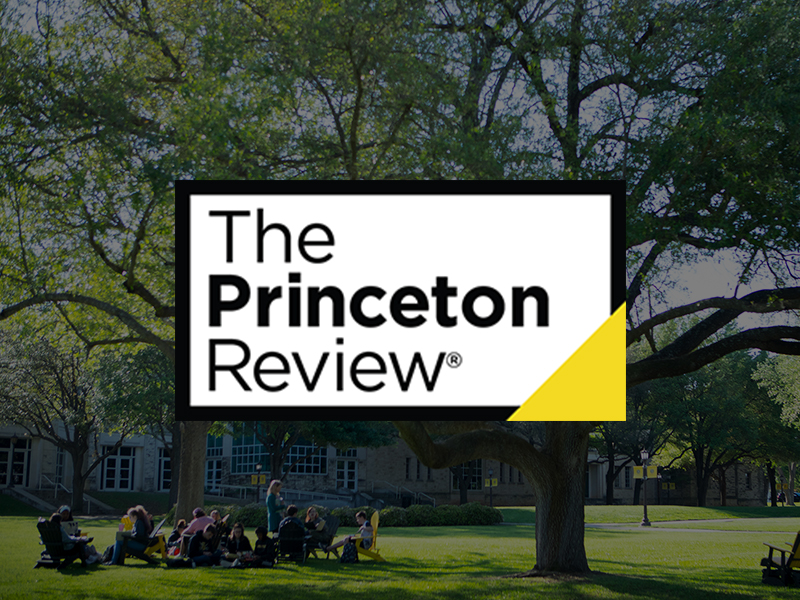News
Southwestern Featured in the 2019 Edition of the Princeton Review Guide to Green Colleges
October 25, 2019
October 25, 2019
Open gallery

Southwestern University is one of the nation’s 413 most environmentally responsible colleges, according to The Princeton Review. The education services company—known for its test prep and tutoring services, books, and college rankings—features SU in its 2019 edition of its just-published free resource, The Princeton Review’s Guide to Green Colleges. Released on October 22, the guide can be accessed at www.princetonreview.com/green-guide.
The Princeton Review chose the 413 schools profiled in this 10th annual edition of its “green guide” based on a survey the company conducted in 2018–2019 of administrators at 688 four-year colleges, which concerned their institution’s commitments to the environment and sustainability. The survey asked college administrators to report on their schools’ sustainability-related practices, policies, and programs. A panel of experts in higher education green practices then produced a rating for each college based on their responses to the survey. More than 25 data points were weighted in the tallies for the “green rating score” on a scale of 60 to 99. Colleges with green rating scores of 80 or higher made it into this year’s guide; The Princeton Review assigned SU a green rating of 88.
“We salute—and strongly recommend—Southwestern University to the many environmentally minded students who want to study and live at a green college,” says Rob Franek, The Princeton Review’s editor in chief.
Franek notes that college applicants and their parents are increasingly concerned about the environment and sustainability issues. Among the 11,900 teens and parents The Princeton Review surveyed earlier this year for its 2019 College Hopes & Worries Survey, 64% said that having information about a college’s commitment to the environment would influence their decision to apply to or attend the school.
The Princeton Review attributes Southwestern’s green rating to such criteria as offering a sustainability-focused degree available to students, having a formal sustainability committee, and providing alternative transportation options such as the Pirate Bike Share Program, reduced-fare or free campus shuttles, and reduced parking fees for car and van poolers.
In the “Campus Life” section of its profile on Southwestern University, the editors of The Princeton Review write, “Students looking to make a positive change for the planet can get a head start with Southwestern’s environmental studies program, an interdisciplinary major or minor that explores the interactions of humans and the environment as well as the impacts of these interactions.” The Princeton Review further commends SU’s Environmental Fellows Study Abroad Program, which provides students who are looking to broaden their horizons while furthering their environmental education fellowships up to $5,000 for approved programs in locations as varied as Costa Rica, Kenya, and Australia. In addition to this, the company mentions Students for Environmental Action and Knowledge (SEAK) as one of the key environmental groups on campus that “maintains a strong presence on Facebook and strives to promote environmentally sound practices at Southwestern and raise awareness of environmental issues.”
The profile further highlights SU’s dedication “to providing as much locally sourced food as possible, reducing greenhouse gas emissions, and minimizing food waste, which is the single largest contributor to landfills.” The company also notes that Southwestern University is the “second university in Texas to sign the Talloires Declaration, which calls upon the school to engage in sustainable practices like a computer-based effluent water irrigation system, low-volume shower heads, and LEED certification on all new construction projects.”
School profiles in The Princeton Review’s Guide to Green Colleges provide detailed information on each school’s use of renewable energy, recycling and conservation programs, the availability of environmental studies, and career guidance for green jobs. The profiles also include “green facts,” such as details on the availability of transportation alternatives and the percentage of each school’s food budget spent on local or organic food.
The Princeton Review first published its annual guide to green colleges in 2010. The company is also known for its dozens of categories of college rankings in its annual books, The Best 385 Colleges and Best Value Colleges.
















